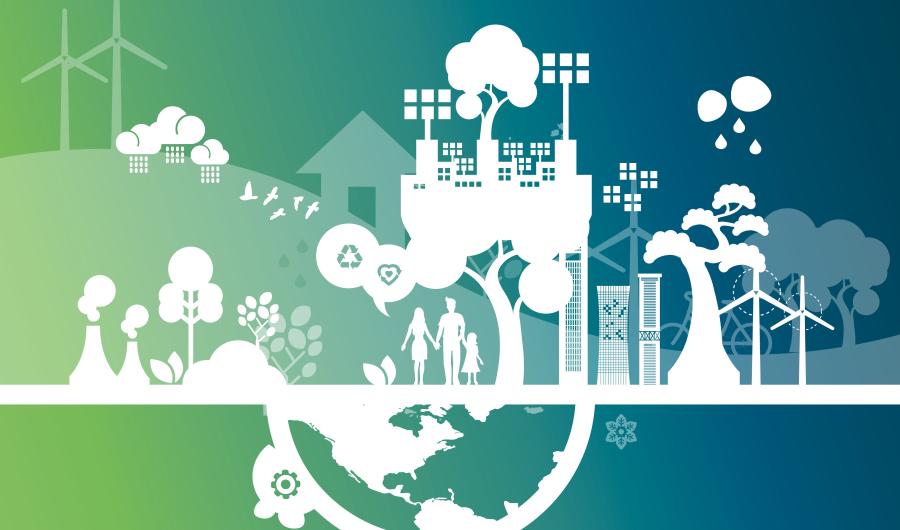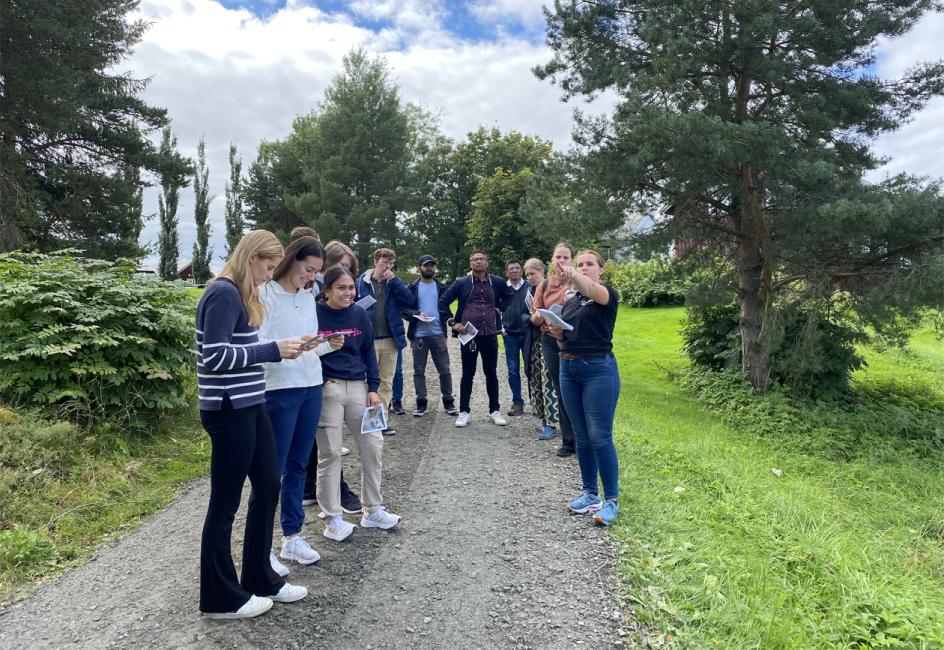
Sustainable Economy and Bioproduction
Do you want to create the green jobs of tomorrow? Learn about sustainable innovation, entrepreneurship and bio-based value creation.
Programme description
Are you interested to work towards sustainable society? Do you want to take new job opportunities in a “green” sector using renewable bio-based resources from sea and land? Then a bachelor’s degree in Sustainable economy and production is for you!
The bachelor degree is multidisciplinary, such that your competence in sustainable development will include both biosciences and economics. You will also gain skills in entrepreneurship and business development. And you gain insight into how you can develop sustainable solutions from bio-produced raw materials and waste to high-quality and safe products, including food for humans, animals and fish, biodegradable plastics, pharmaceuticals, biofuels, cosmetics and more. In the study program, we offer several specialization subjects and internships, where you can choose what you find most exciting. A bachelor's degree in Sustainable economics and bioproduction provides a good basis for a number of jobs, and further studies in economics and bioproduction.
Career opportunities
Admission to the study program requires Higher Education Entrance Qualifications.
Information for those who apply on the basis of vocational training (deadline 1 March):
Applicants who do not have general study qualifications, and who are 25 years of age or older, can apply for admission on the basis of prior learning and work experience. In the following, examples of relevant formal competence are outlined: work in economics, business economics, agriculture, forestry, fisheries, farming, food industry, chemical industry, industrial process technology, climate and environmental protection and other related industries. Schools with relevant lines/subjects in relation to the education are, for example, economic-administrative subjects, green subjects, blue subjects, technical subjects and food subjects. When it comes to admission on the basis of formal competence, the following academic requirements apply; Norwegian from Vg2 and mathematics from Vg1.
Have you thought of exchanging to another part of the world? We highly recommend our students to spend part of their degree at one of our collaborating universities. Studying abroad is an exciting opportunity to gain international experience, while allowing a broader selection of topics and courses. A study abroad compliments your degree best in the fifth semester.
We have dedicated staff who will do their best to help you with your stay abroad. For more information on the process, please contact Jose de Pool, advisor for study exchange.
The application deadline for exchange is 20 January for the autumn semester.
Students can continue studies in Nord University's master's degree programmes: Nordic master's degree in sustainable production and utilization of marine bioresources and Master of Science in global management.
The programme's options regarding specialization subjects, elective courses, internships, exchanges and bachelor's degree theses provide the opportunity to adapt the content to specific admission requirements for various master's degree programmes.
There are increasingly more advanced study opportunities (master's and doctoral degrees) in bioeconomy in Norway and abroad, where the programme provides a good foundation for applicant, and can be adapted to special admission requirements through conscious choices of specialization subjects/bachelor's thesis and internships.
The programme provides candidates with broad knowledge and expertise in sustainable and profitable value creation of bioresources (sustainable economy and bioproduction). This means understanding biology (living organisms) and biochemistry (interaction between biomolecules) as a resource and to produce and value-manage (the economy) renewable bioresources within logics such as sustainability, circular thinking, biotechnology and digital transformation.
After graduation, the candidate will have obtained the following learing outcomes:
Knowledge
- have a broad knowledge and understanding of bio-based resources, processes and technological opportunities
- have a broad knowledge of business theories and concepts for the sustainable resource management
- have a broad knowledge of change processes and business development for the use of bio-based resources
- have a knowledge of research and development work within sustainable economy and bioproduction both nationally and internationally
- have knowledge of sustainable economy and bioproduction's role in society, and influence on the sustainable transformation
Skills
- is able to apply subjects methods and tools to investigate phenomena and solve practical and theoretical problems both in the laboratory and through economic and life cycle analyses
- is able to reflect on own practice based on research/facts and adjust this under guidance
- is able to identify, organize and carry out interdisciplinary problem solving/work together with others
- is able to reflect on the importance of the sustainable economy and bioproduction for governmental administration and regional development
General competence
- is able to identify and evaluate subjects and professional ethical issues in the balance between sustainable economy and bioproduction
- is able to plan and carry out an independent, limited investigation under supervision, both individually and in groups
- is able to reflect subject matter on sustainable economy and bioproduction both in writing, orally and through other relevant forms of expression
- is able to exchange knowledge with others on the sustainable economy and bioproduction and participate in discussions on the development of good practice





